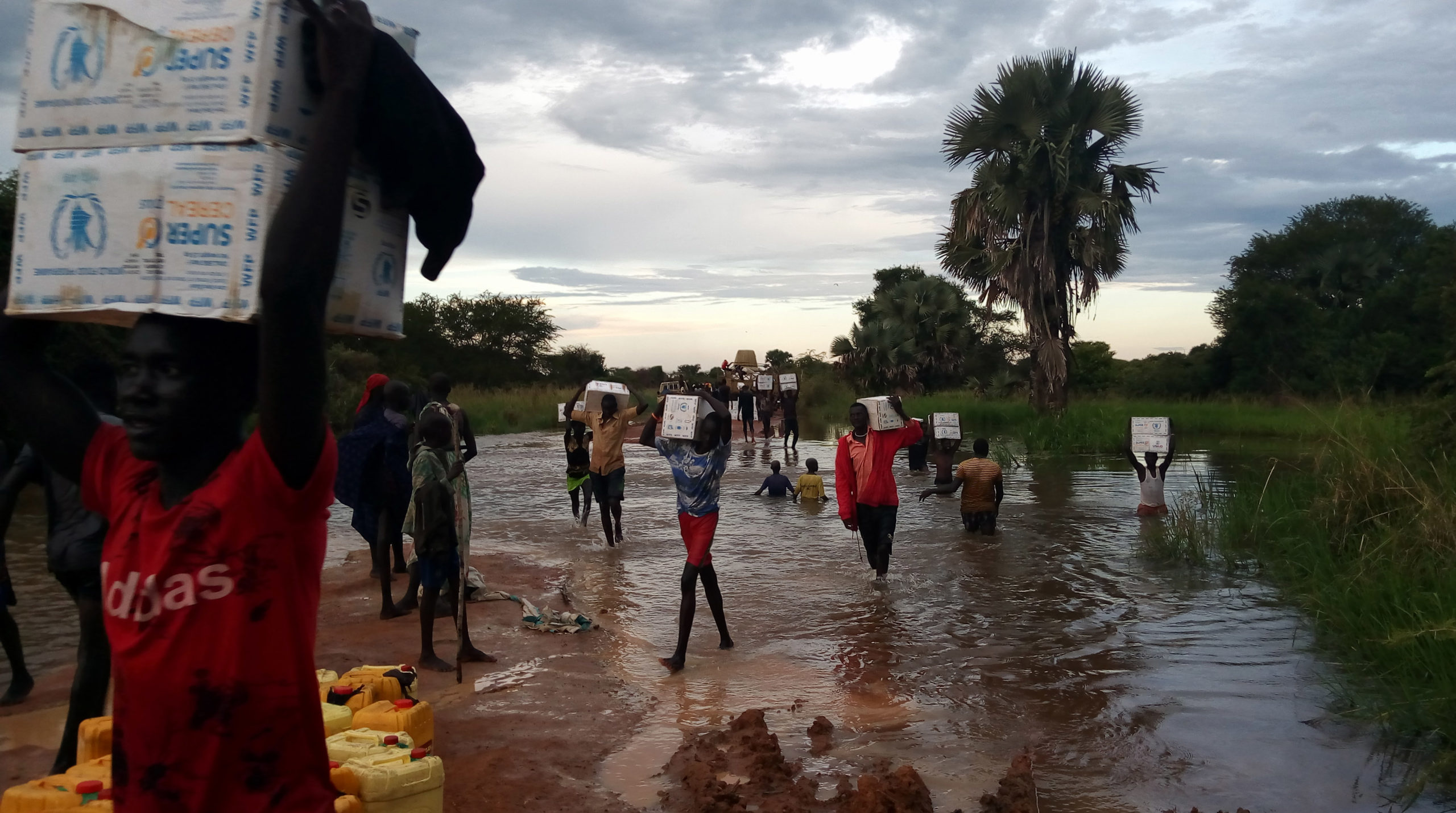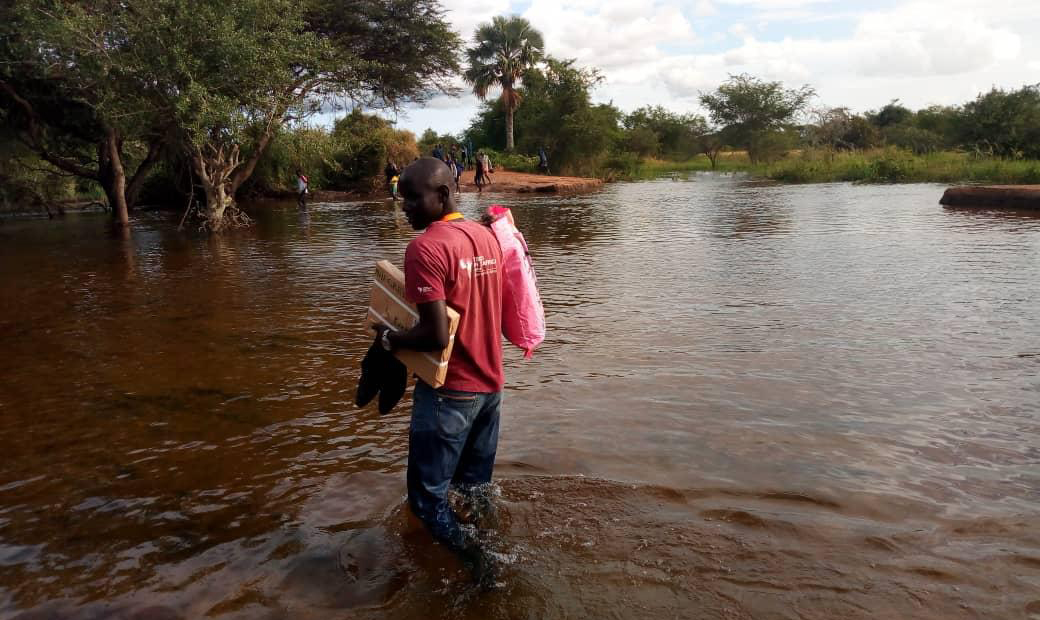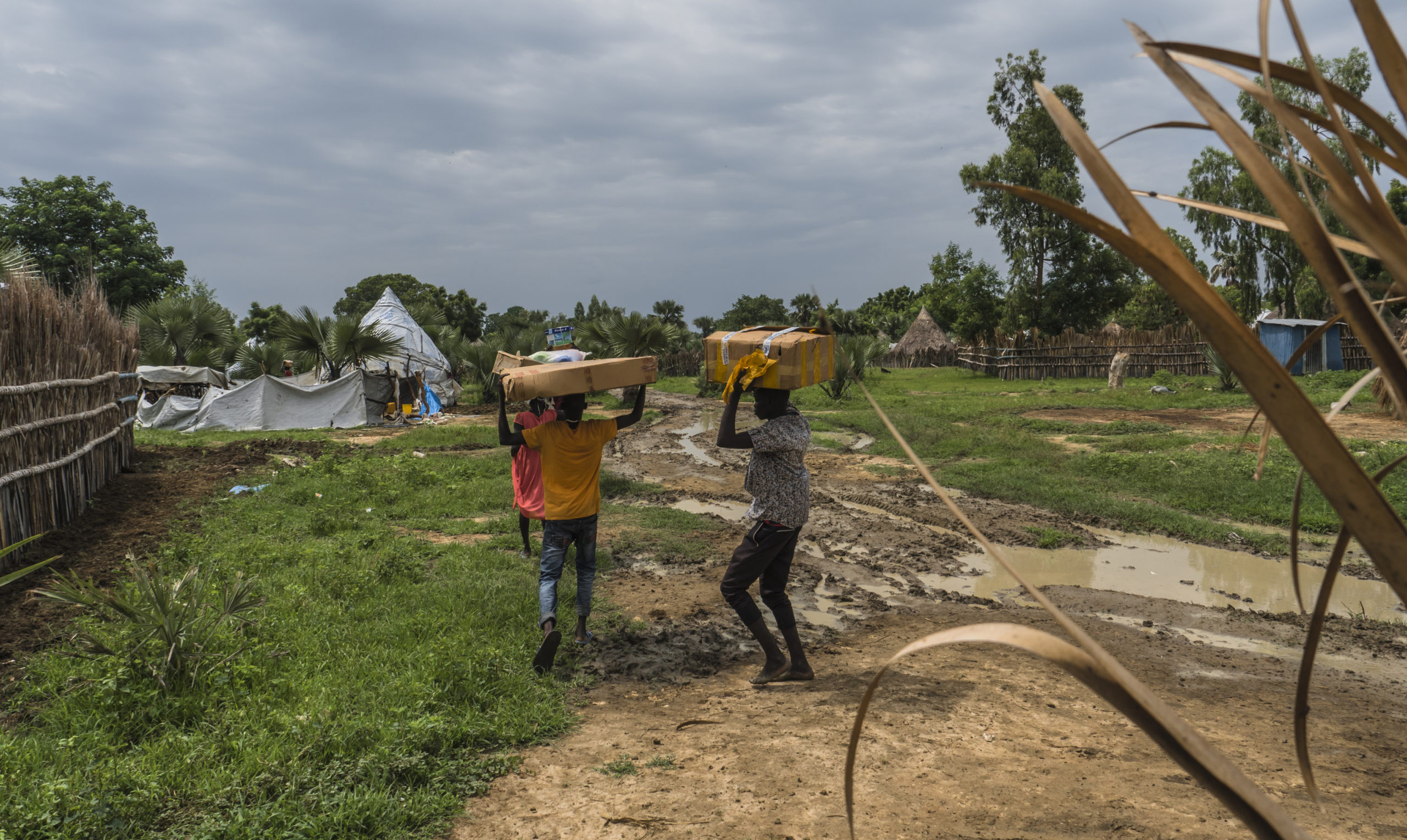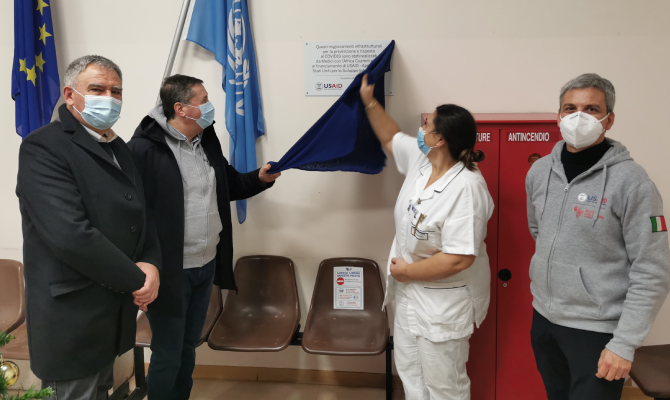In Shambe, South Sudan, the health centre has been flooded by rains in recent months, but the refrigerator was rescued and is still working. To preserve the vaccines, which our operators are able to bring to the facility with the help of the local community, unwilling to be discouraged by the adverse climate.
The problems began last summer when large areas of South Sudan were flooded due to torrential rains and 856,000 people had to flee their homes, according to OCHA data. Not even Yirol East County, where the Shambe health centre is located, was spared from the floods and even today the water shows no sign of decreasing.
For this reason, in order to bring stocks of vaccines and drugs to the health centre, it is necessary a long journey by car, transferring the load on the back of mules and then inside some canoes to get, often wading on foot, to the old health centre, where an indispensable but unmovable refrigerator was hoisted on top of a stack of pallets.
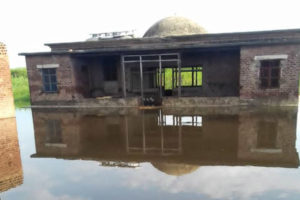
Thanks to the connection with the solar panels, in fact, the refrigerator can continue to store the doses of vaccines, which are then distributed in a new temporary health centre, set up by our staff in collaboration with the community in a nearby dry area and more easily accessible by people.
The example of the commitment of the Shambe community to not lose their health centre is one of the many stories of perseverance that come from South Sudan. Many other health centres and small villages can only be reached by canoe or on foot, wading through the flooded areas, where the water comes to life and our workers and volunteers must carry basic necessities over their heads, so as not to get them wet.
Vaccines, drugs, but also treatments against malnutrition, which is increasing among the displaced: people left with nothing, after having fled their homes and lands by fleeing the water.
From the county of Awerial, in another part of South Sudan where we are partners of the South Sudanese ministry for health and nutrition, the figures are even worse than in recent months. The number of displaced people is now 70,000 and shows no signs of decreasing. The effects are also seen on the health system, already fragile and under stress. In September and October, outpatient visits to the health centre in Minkamen rose by 67%: mostly new residents, seeking basic care for the most common diseases, such as diarrhoea, malaria and malnutrition.
To respond to this problem, we have organized mobile clinics and strengthened the capillary network of village workers, who can bring care directly among the displaced communities, relieving health centres and reaching even the most isolated families.
In these days, this intervention has been expanded: in addition to Awerial County we will also bring mobile clinics to the Rumbek East, Rumbek Center and Yirol East areas. Everyone’s help is needed to ensure basic care for displaced people, but also for host communities, put to the test by the emergency.

